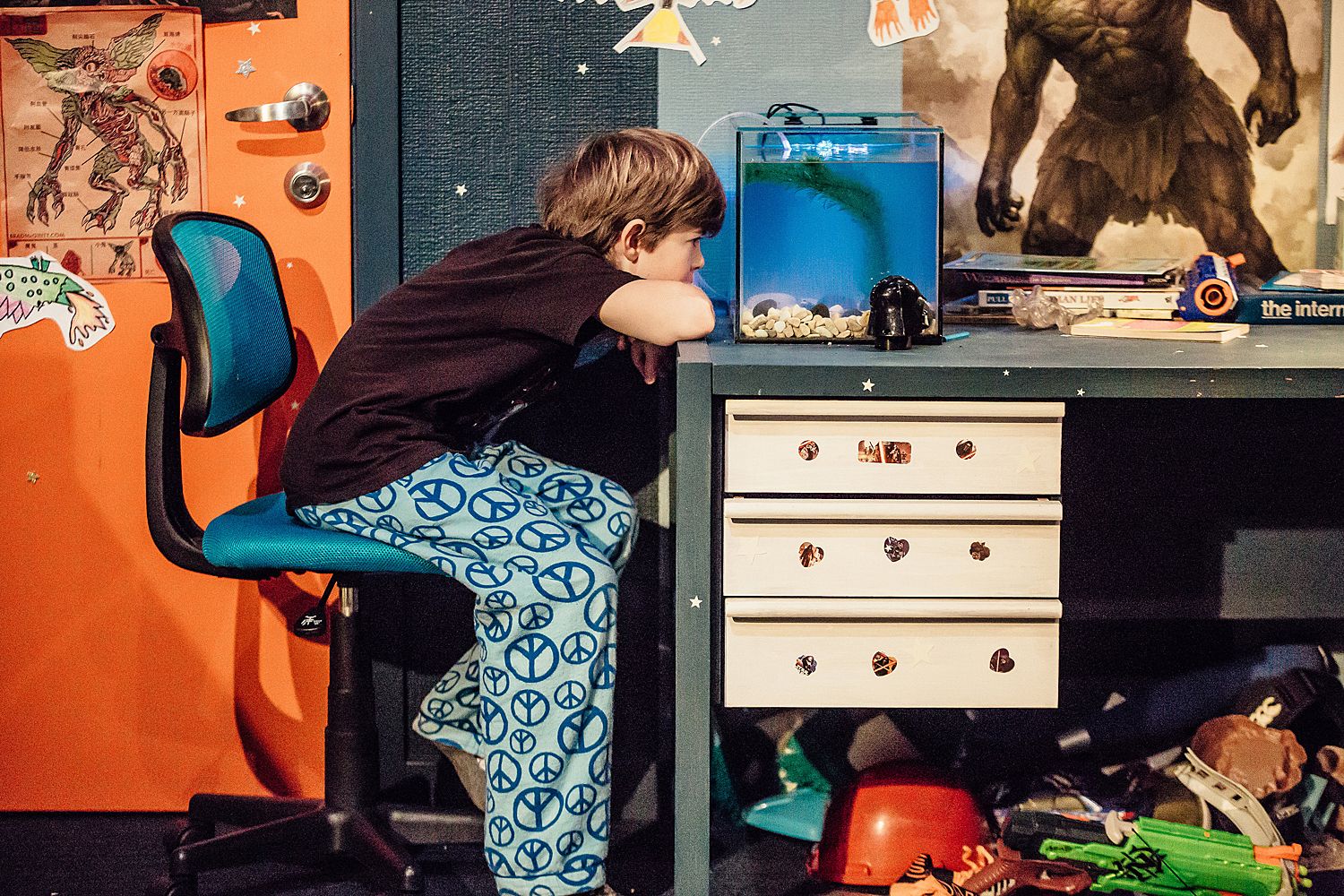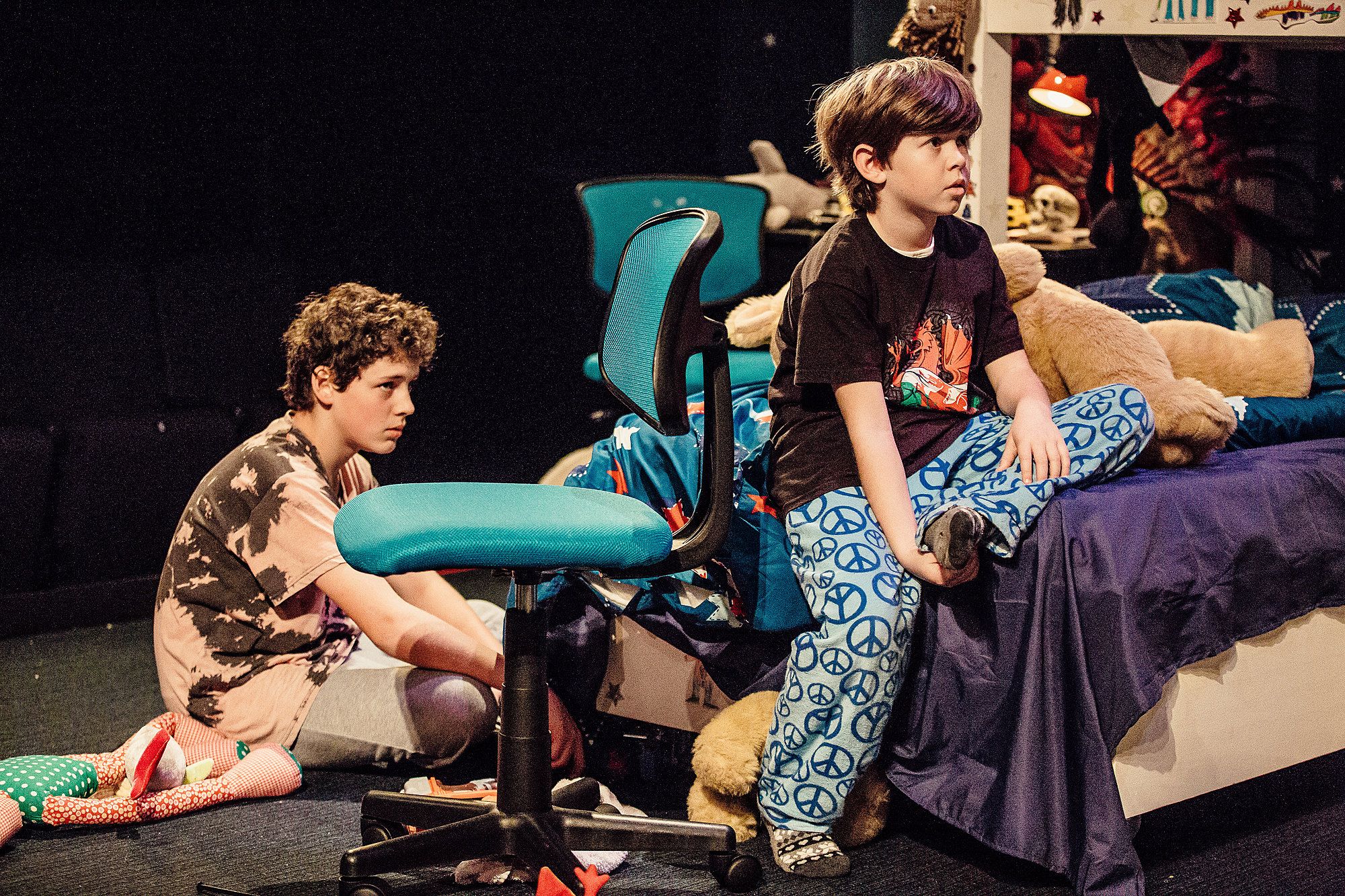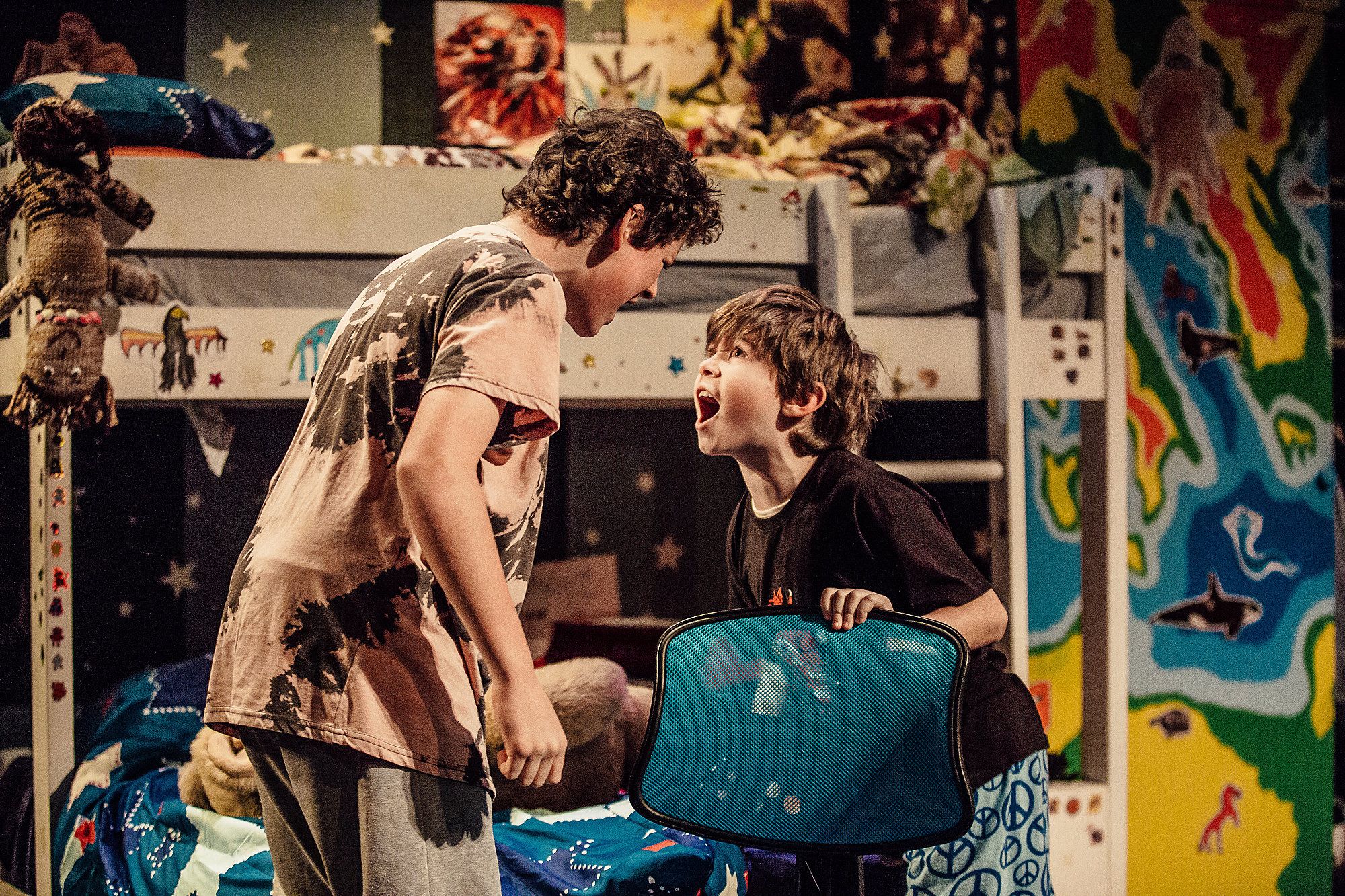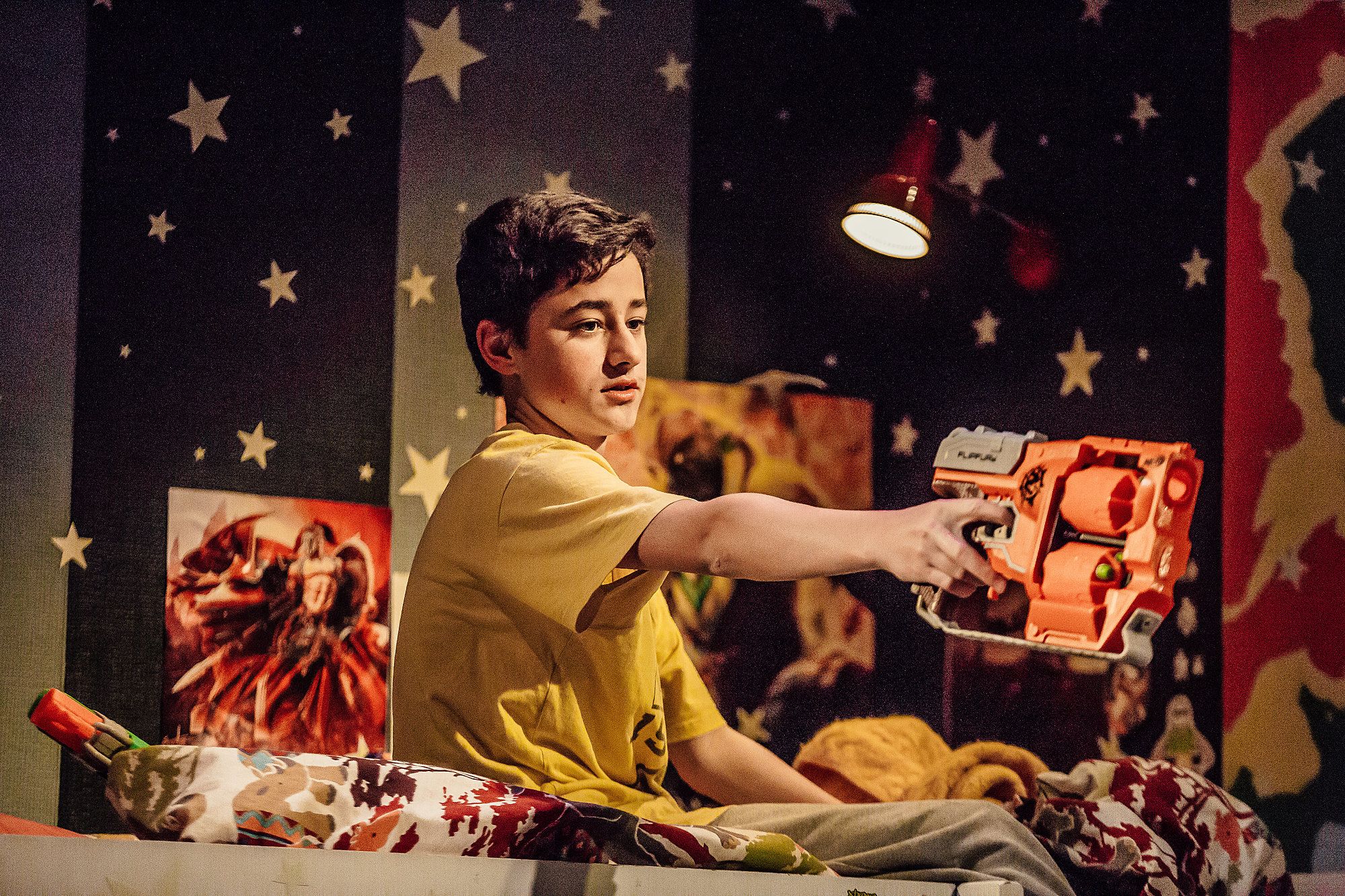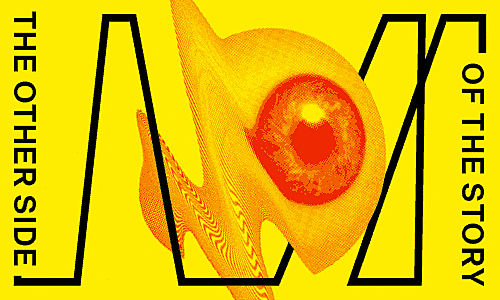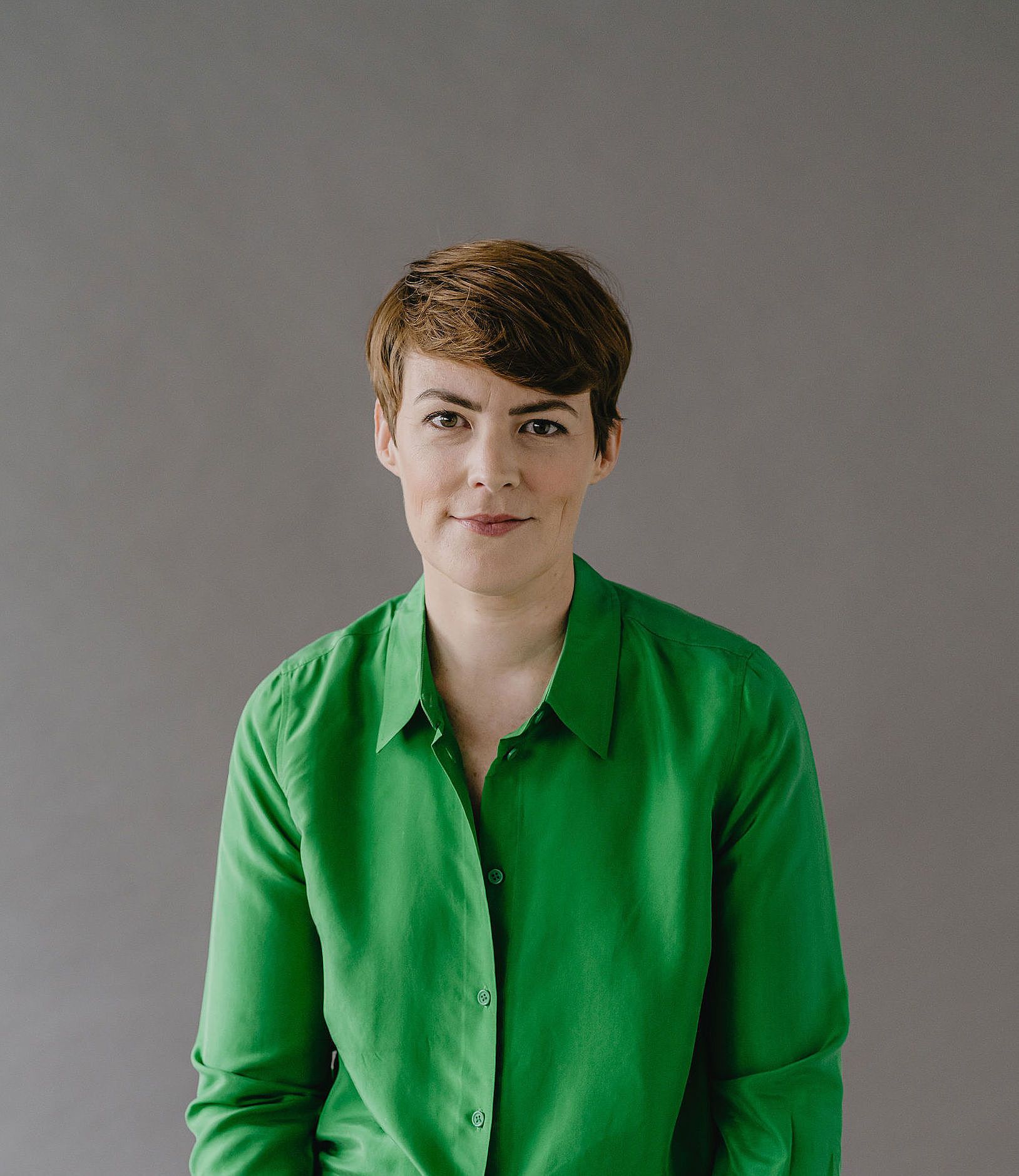Love, Disorder and Ancient Histories
In a new version of Medea, we find ourselves in a contemporary children's bedroom, where primal violence and revenge is stripped away for love.
In a new version of Medea, we find ourselves in a contemporary children's bedroom, where primal violence and revenge is stripped away for love.
The ancient Greek playwright Aristophanes complained that the demi-gods of Euripides’ plays were just too damn ordinary. In The Frogs, he bemoaned the fact that Euripides’ characters are too like us, that – as academic Jasper Griffin surmises – they lack the requisite tragic distance and glamour. Indeed, the Medea of myth was a wild sorceress, a granddaughter of the sun god Helios. Without her wiles, her husband Jason (of Argonauts fame) wouldn’t have triumphed with the marvellous Golden Fleece. And yet Euripides created a sympathetic view of this outsider, backgrounding her previous deceitfulness and foregrounding her suffering. He gave Medea and Jason human visages, with all the marital squabbles and mutual reproaches and bad hair days.
It’s a fitting continuation, then, that Australian theatre makers Anne-Louise Sarks and Kate Mulvany should till the soil of workaday familiarity in their Medea, sidelining Euripides’ protagonists completely and placing their offspring, in their simple domestic innocence, at the centre of their Greek tragedy. In Euripides’ original, the children have around eight lines between them. Where are the kids when Medea is castigating Jason of his infidelity? What do they know of their parent’s pain or the fate about to befall them?
Some quick background: In Euripides’ version, Jason spurns his wife and decides to remarry into Corinthian royalty. The Corinthian king, Creon, banishes Medea, but grants her a final day before she must leave. After raging against Jason, whose offer of financial help she rejects, Medea’s vengeful plans to kill the king and Jason’s new wife, Glauce, are extended to include her own children. The satisfaction of making Jason suffer outweighs any trepidation or pain she might feel.
Feigning forgiveness of her former husband, Medea asks her sons to take a gift of a gown wrought of gold and a coronet to their new stepmother, along with the request that they take her children into custody. The gown and coronet are poisoned, killing Glauce. Her father holds her close and is poisoned himself. Medea, past the point of no return, now kills her two sons. The audience only hear their cries from offstage.
While Euripides’ Medea began as a loose framework for Anne-Louise and Kate, their Medea soon became a world of its own. Yet what is so satisfying about much-performed texts is that in their adaptation, the ghosts of previous iterations and our own expectations haunt the stage. The playwright or adapter is doing a double act; in creating their own version, they have the riches of a kind of dramatic collective unconscious to draw on. Kate and Anne-Louise tap into this deep vein of resonance, yet by making our demi-god an ordinary, loving Mum and our distant child victims, Jasper and Leon, full characters in their own right, we’re offered a glimpse into an ancient story with new eyes.
What is so satisfying about much-performed texts is that in their adaptation, the ghosts of previous iterations and our own expectations haunt the stage
In her notes to the script, Anne-Louise comments how she was struck by the sometimes ‘heartbreaking collision of knowledge and naivety’ children bring to the adult world. How do children make sense of a world which, at its worst, renders them powerless? Taken at face value, the story of a parent killing a child, motivated by revenge, possessiveness, or misguided altruism remains sadly relevant. Anne-Louise cites the horrific incident of Darcey Freeman being thrown off Melbourne’s West Gate Bridge by her father in January 2009. What stuck with her was that Darcey’s six year-old brother, Ben, said to his father, ‘Go back and get her, Darcey can’t swim.’
As Euripides’ Nurse states, ‘young heads and painful thoughts don’t go together.’ But this isn’t why Ben’s statement is so devastating. There was no question in his mind that his Dad wouldn’t look after his sister. It underscores children’s deep sense of moral order. Parents protect, and children are protected. The boy’s room in which Kate and Anne-Louise set their Medea feels like a sanctuary of order. Sure, the boys can play at war and chaos, but these games affirm a structural regulation while the world is being upturned outside their door. Stick-on glow-in-the-dark stars cover their roof and walls, bringing the cosmos – the orderly, mappable universe – into their bedroom. And then Medea enters, bringing love and disorder.
The sanctum of a bedroom also speaks to the comfort of home. A bedroom is a safe space you can carve out. It’s your own private territory. One of the thematic threads of the Medea myth is otherness and exile. Medea is a foreigner, a barbarian in an unfamiliar land who first escapes her own home and is banished once again. But her offspring – as the children of Jason, a Corinthian – have the opportunity to shed their foreign whakapapa and cement a rightful sense of home. And yet in their own home, in their own bedroom – a place of ultimate comfort – this potential of their future selves is erased.
With the tale of devastating revenge set somewhere deep in our collective unconscious, Kate Mulvany and Anne-Louise Sarks’ Medea plays out with a grinding, von Trier-esque inevitability. This is countered by the joy, unpredictability and playfulness of the children on stage. Young people bring a power to live performance which is all their own. ‘The beauty of going to see any live theatre,’ Kate comments, ‘is that anything can happen, but when you leave the show in the hands of children, that possibility increases tenfold.’ Not only this, but children bring a ‘realness’ that ruptures our double vision when watching the actor/character. Theatre-maker Tim Crouch notes, ‘the old showbiz dictum of never working with children or animals is not because they’re uncontrollable. It’s because they’re too real. Not realistic, but real. And when you’re an actor giving your realistic all, there’s nothing more undermining than performing it next to something real.’
Anne-Louise adds that the power of children in performance derives from their truth. ‘When they’re at their best, they are utterly captivating and completely inside the play. The best adult actors are the same but it’s so natural to kids. It’s an incredible energy to witness.’ Working with children offered so much lightness to the work. ‘The play is fun, it’s joyful and playful, until it really isn’t.’
By working with the Medea myth as a loose framework, Kate and Anne-Louise found much of their material through improvisation workshops with the original cast, after which Kate hunkered down to write the script. ‘For me’, Kate says, ‘putting my trust in this development process was a massive shift in style. I’m a very text-driven writer. I like to lock myself away for months and create the world in isolation. So this collaborative exploration, putting my faith in two children, was an enormous challenge, and one I’m so happy I took.’
Kate and Anne-Louise have also been conscious of the actors’ ownership of the work. While the work is very tightly scripted, Kate adds ‘it contains elements of “you can make up whatever you like here”… So the cast, wherever they are, in whatever production, have a very personal relationship with the text. We want them to make it their own’.
I asked the boys in the Silo casts how they related to their characters. ‘I have an older brother, he’s 17, so I’m like the Jasper in the relationship,’ says Levi Kerema. ‘I thought about how I treated my brother and how it was the same.’ Jo Valentine, playing Jasper to Levi’s Leon adds, ‘I have an older sister, and every once in a while we might have arguments. But just like when Leon talks about the stars to Jasper, we get along like that.’
I hadn’t heard of Medea at age 11, so I asked the boys whether they had. ‘Not at first,’ says Levi, ‘but I Googled it. It’s pretty deep eh.’ Jo adds: ‘I watched the movie, Jason and the Argonauts. The storyline is really good.’ Aeden Burmester, also playing Leon, has a cousin Ella ‘who kept going on about it.’
The enduring power of Euripides' Medea lies in the discrepancy between her seeming frankness and her fundamentally unknowable nature. Academic Edith Hall notes how the play leaves problematically open the true religious or cosmic purpose of the events portrayed. Perhaps this is even more compelling when we view those events through the eyes of her children. At some point in our early years, we arrive at the shocking realisation that our mums were once individuals in their own right. Their past lives, before we came along, are relegated to myth or mystery. And yet Jasper and Leon probably haven’t reached that point yet. To them Medea is purely Mum. Mum, who loves them more than anything in the world.
Euripides may have been interested in creating a sympathetic Medea, but Kate and Anne-Louise were determined that the audience love her. As Kate explains, ‘we wanted her to be as loveable as the children when she enters the stage. We want them to be naughty allies… When it came to writing Medea’s words, we just went back to love. Every line of hers comes from a place of deep, deep love. And sadness.’
When it came to writing Medea’s words, we just went back to love. Every line of hers comes from a place of deep, deep love. And sadness.’
Anne-Louise describes a moment a few days before the first Sydney season opened, when the collaborators discovered that their ending simply wasn’t working. They had to make an awkward gearshift back into creating, and found the answer in material that had previously been cut: Kate had written a speech that had been inspired by a moment Anne-Louise had seen on an aeroplane ‘where a mother was kissing her child, over and over and over again. And it made me think about love. About the intensity of love.’
If Euripides was interested in challenging the steadfast Greek belief in the ethos of reciprocity and revenge, then what challenge lies at the centre of our child-centred Medea, where revenge is replaced by love? Could it be a counter to our disbelief that extreme, painful human acts could derive from the same love we all feel? Misguided, corrupted love - but the same fundamental emotion?
Euripides' Medea has endured partly due to the murkiness of the central character's true motivation and the metaphysical questions that raises. Downscaling from fiery chariots, our modern Medea's impetus, while couched in love, remains just as intangible. But for once, this isn't our focus.
‘For the first time ever,’ says Kate, ‘we get to hear the children speak. We get to see them play. We get to see them laugh and tease and cry and examine their own existence. More importantly, we get to spend their last hour on earth with them when no-one else in history has.’
Medea
is on at the Herald Theatre
16 Jun - 9 July
Tickets available through Ticketmaster Plus, come along to a night of risky storytelling that
pulls back the curtain to reveal worlds we seldom get to see:
from inside the writers room for our nation’s favourite soap to
days spent watching somebody else live their lives – with unanticipated resultsHosted by Matthew Crawley and featuring stories from Kanoa Lloyd, Rob Mokaraka
Anna Jeffs and Harry McNaughton.
The Other Side of the Story
Herald Theatre
7.30pm – Monday 4 July
Tickets $25 or $20 for Pantograph Punch members
Available from Ticketmaster
